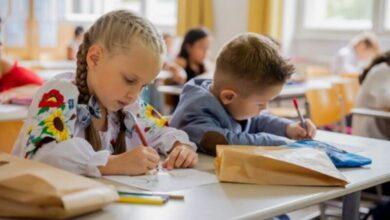The Verkhovna Rada has developed a draft law on the introduction of security measures in general secondary education institutions

Safety in educational institutions, especially schools, should be a matter of primary importance for society. In view of the constant threats arising from military aggression and socio-economic instability, increasing the level of child protection has become a key goal of state authorities. In response to these challenges, the Verkhovna Rada of Ukraine developed a draft law that aims to radically change approaches to school security, giving greater responsibility to local authorities and strengthening their role in this process. This step can become fundamental in reforming the security system in educational institutions, because the responsibility will be transferred to bodies that better understand the specifics of regional problems.
Draft Law No. 11543 offers a comprehensive approach to safety in schools, providing for significant changes in the regulation of the processes of organizing a safe environment for students and teachers. One of the key aspects of the innovation is the obligation of school founders – local authorities – to implement clear and strict safety rules. These rules will cover the determination of the regime of people staying on the school grounds and in their premises, fencing the territory of the institution, as well as the installation of technical means of protection, such as video surveillance systems, access control and the urgent call of the police in case of emergencies. It is important to note that such measures will allow not only to control the access of outsiders, but also help to prevent various offenses that may occur among the students themselves.
In addition, the school director will receive expanded powers and new duties. He will be responsible not only for the administrative management of the educational institution, but also for the coordination of preventive measures aimed at reducing the level of delinquency among students. This involves close cooperation with law enforcement agencies and other institutions dealing with issues of security and law and order. School principals will be involved in the development and implementation of programs aimed at raising students’ legal awareness, their awareness of their own responsibility before society, and prevention of risky behavior.
One of the most important innovations of the draft law is clear requirements for persons who have the right to be on the school premises. The new rules for staying on the territory and in the premises of the educational institution will be approved by the pedagogical council after coordination with the founder of the school. Access to the school for outsiders who are not participants in the educational process will be strictly controlled: it will be possible to enter the territory only with the special permission of the school director, with the exception of officials performing their official duties. This provision is intended to reduce the number of outsiders who could potentially pose a threat to students and staff.
Another significant change is the ban on the presence of persons under the influence of alcohol, drugs or other intoxication, as well as those who have dangerous objects or substances on the school premises. This also applies to animals, with the exception of those used in the educational or educational process. These measures are designed to increase the level of discipline in schools and protect students from potential threats. It is important to note that these rules will not apply if the school is used as a shelter during hostilities or other emergency situations, which is relevant in the context of war.
In addition to the rules of stay, the draft law provides for clear requirements for persons who may be involved in the protection of educational institutions. In particular, persons with outstanding or unexpunged criminal records, those who have been found guilty of offenses against sexual freedom and integrity, or those who have received administrative penalties for domestic violence, bullying or improper performance of child-rearing duties cannot work in this sphere Such requirements create an additional barrier for dangerous persons who may pose a threat to children.
The draft law is currently being considered by the Verkhovna Rada Committee on Education. If it is supported by the Parliament and signed by the President, these changes will enter into force, radically changing approaches to ensuring safety in schools. The main goal of this draft law is to create a single system of mandatory rules that will protect children from external and internal threats, as well as promote the development of a culture of safety in educational institutions at all levels.





